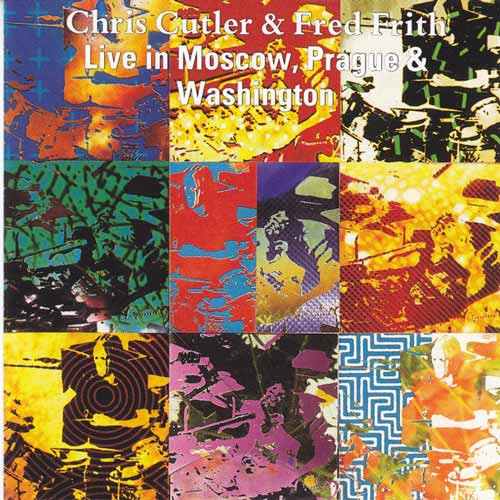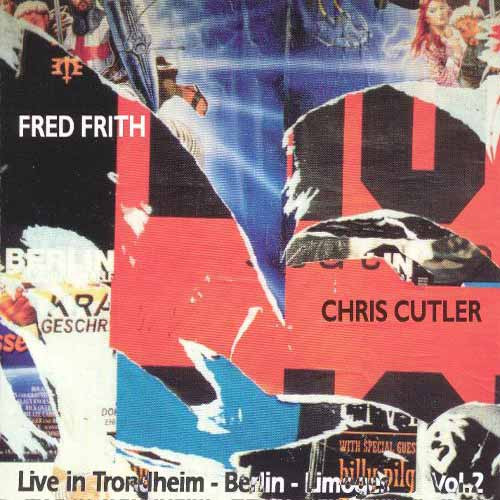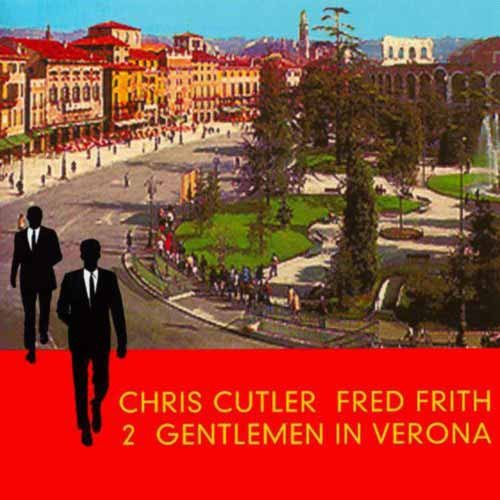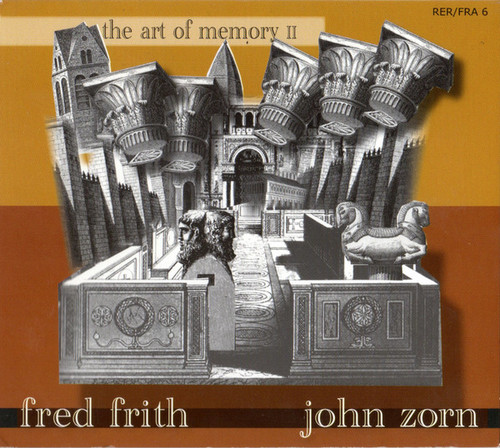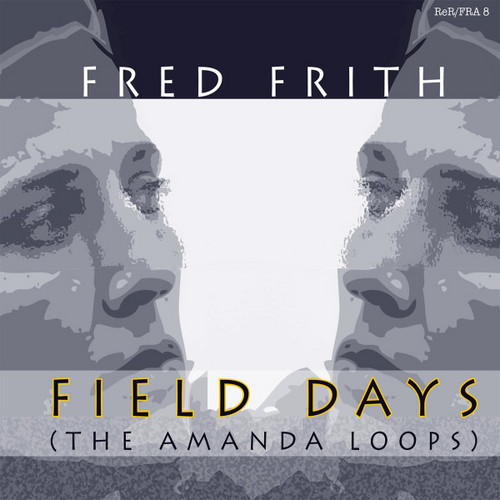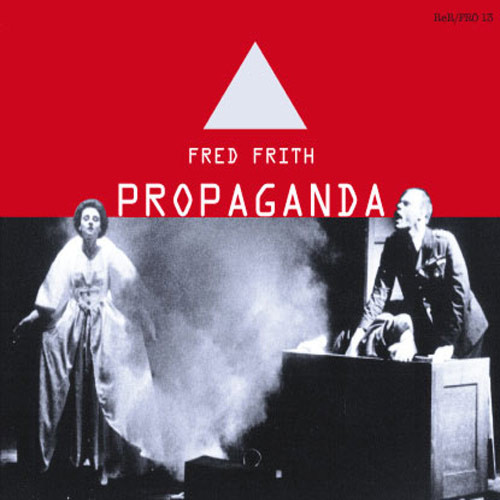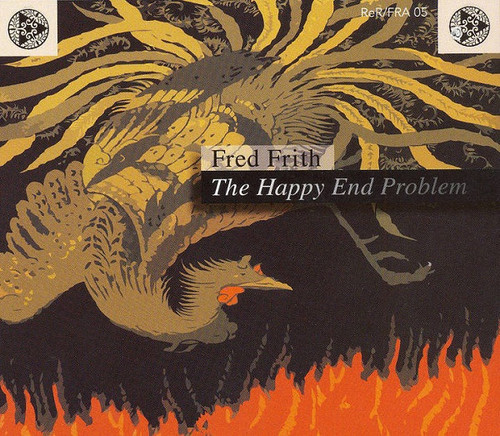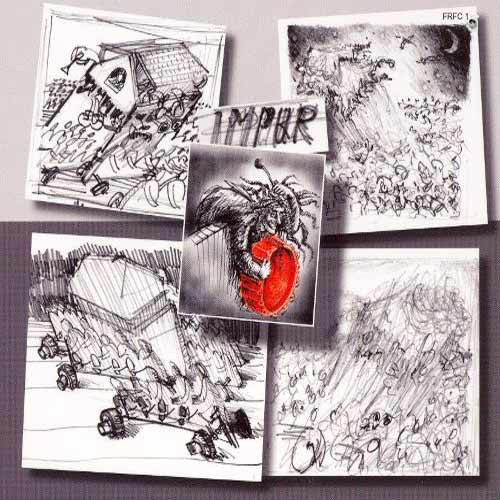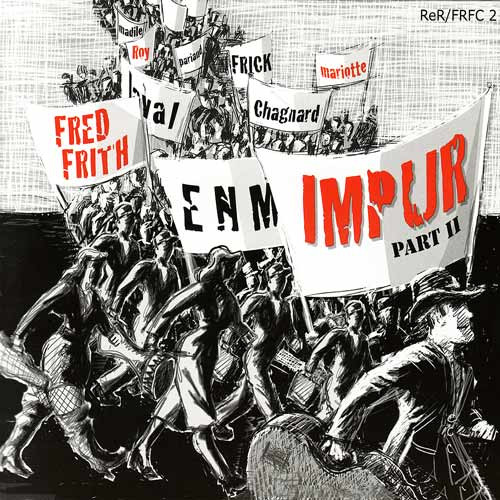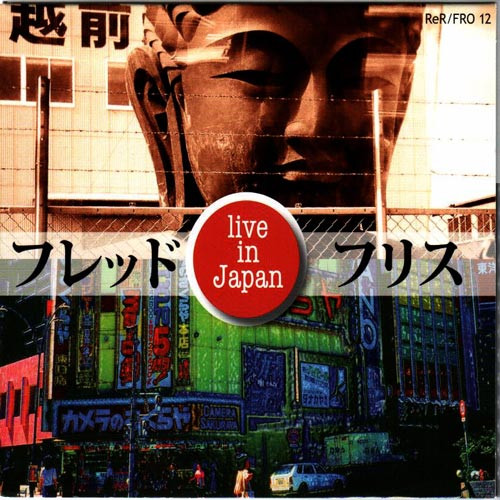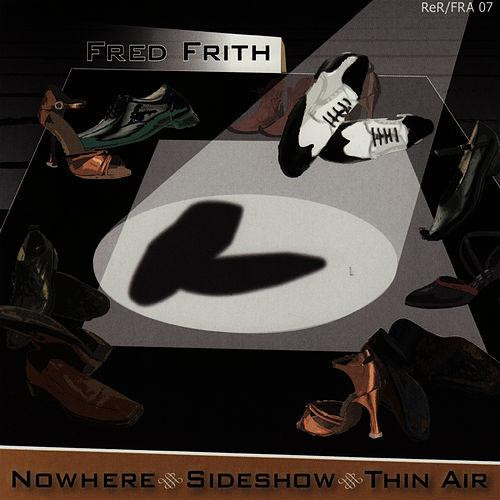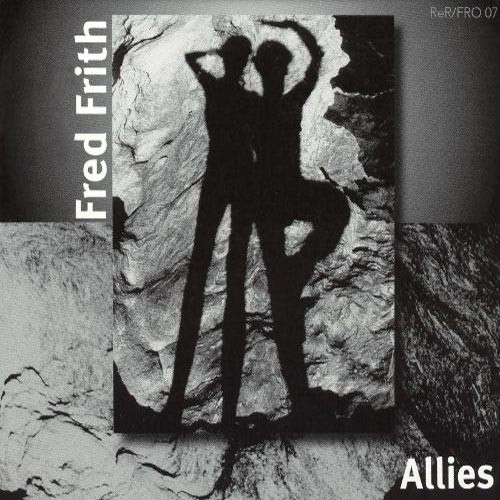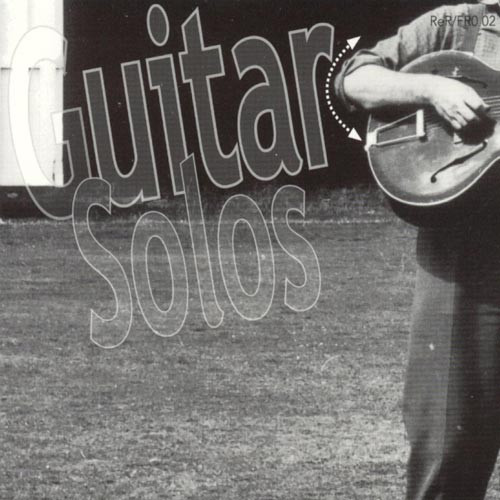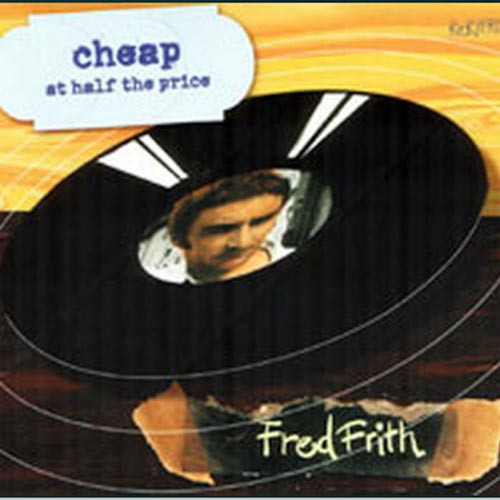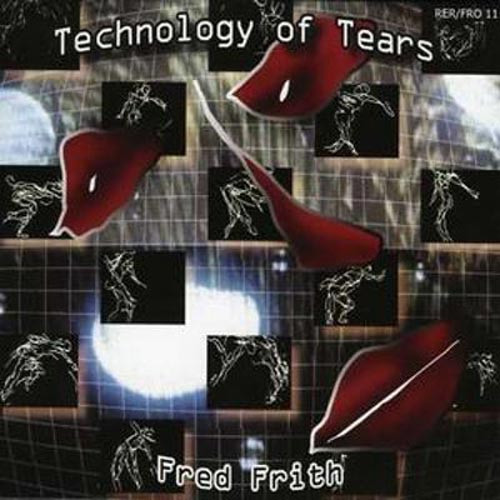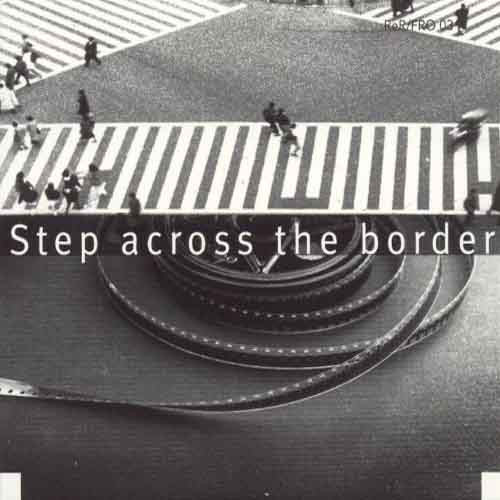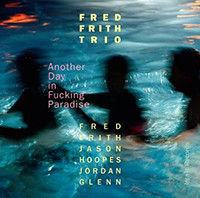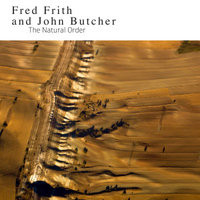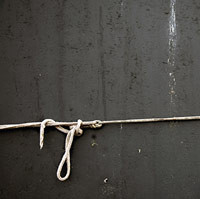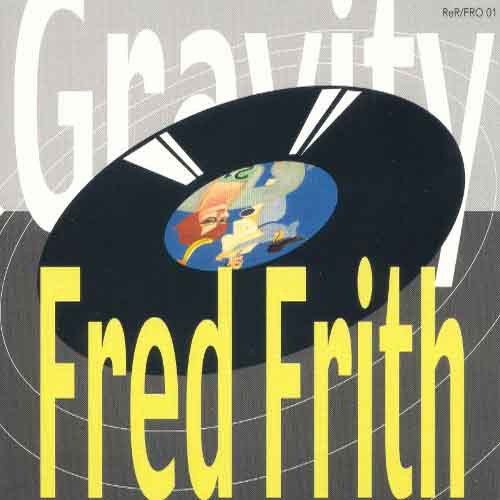Fred Frith
Live in Moscow, Prague & Washington
72 minutes consisting of the whole of a 1978 Prague concert, a cause celebre at the time, (audibly) dividing the 3500 public and provoking controversy for some years after; a snippet from Washington, and the whole of a Moscow concert 10 years later (May '89).This is improvised music that refuses to fit into the usual categories of improvisation, as well as being technically and formally provocative.
Live in Trondheim, Berlin & Limoges
Digital recordings from the Nordlydd Contemporary Music Festival and Berlin's Tacheles from 1991. Plus the historic prescient noise-music 1978 analogue recording from Limoges as a bonus. All singing, all dancing, all hell let loose. Float like a butterfly, sting like a bee...
Two Gentlemen in Verona
An almost complete concert from Verona, 1999, slightly edited for listening logic with an impeccably clear and transparent sound. Very different from CCFFs 1 and 2, this documents a more upfront, intense performance, full of history, rock, post rock, tunes, rhythms, even melodies - all transformed into a contemporary and compressed musical language. With a surprising encore!
The Art of Memory II
Fred Frith summarizes the release on his website as "early 80s weirdness with John Zorn." To expand a bit, perhaps "idiosyncratic improvisation with a strange set of tools from two master musicians" would help place the form and ability of the music of Frith and Zorn, who have travelled and performed sporadically as a duo over several decades. These are five fascinating recordings from the blossoming downtown NY scene, originally from two NYC performances recorded on cassette in 1983 a…
Field Days (The Amanda Loops)
14 pieces originally written for dance and other practical situations, here reassigned and reconstructed for choreographer Amanda Miller and the Nederland Dans Theater. These are loop-based, textural, mood pieces, and invocations of spaces and landscapes, with some fine steel guitar playing. Mostly this is Fred multi-instrumenting, with pianist Daan Vanderwalle, percussionist Willie Wynant, the Arte Sax quartet and Lotte Anker, the Arditti Quartet, Kiku Day, occasional shakuhachi, and vio…
Propaganda
Written for theatre in 1987 using a host of avian and mammalian voices, snippets of unidentified musical material and electroacoustic noise- sculpting, as well as invented and real instruments played by Fred Frith. This was a hard time and the mood is intense, lean and not cheerful, though there are some gruesomely cheery inserts. There's no fat but a lot of meat here.
The Happy End Problem (Music for Dance Volume 5)
Frith's Music for Dance Volume 5 - two works for small ensembles, which were performed for each of Amanda Miller's dances created for The Pretty Ugly Dance Company. The first is based on Stravinsky's Firebird Suite, and the other a deliberately Western look at Japanes culture.
According to Chris Cutler:
'Happy End' presents two, related, small-ensemble works for 6 and 7 musicians respectively - mostly strings of one sort or another, with percussion, flute, clarinet and electronics. Fred, v…
Impur
"In 1996, at the end of a two year residency, Fred organised an event at L'Ecole Nationale de Musique de Villeurbanne in France. He roped in as many of the students as he could, grouped according to their departments (early music, rock, African drumming, classical &c), and set them up in all the rooms in the building. The public wandered around creating their own mix, or sat in the courtyard listening to the sound drifting out through the open windows.
For their part, each group of musici…
Impur II
Essentially a pretty great concert by a large 19 strong ensemble with Fred conducting as well as playing. Lots of rhythm, harmony, rock noise, exotic instrumentation, power, complexity and melodic writing, with stretches of chaos, eccentricity and theatre. Totally different, then, from Impur Part I which was a deconstructed, spatialised simultaneity of musical events heard through open windows or by wandering through rooms; Impur Part II was an unannounced performance upon which audience …
Live In Japan
Concert recordings made at various venues in Japan in 1981 and released by Recommended Records Japan in 1982 in an edition of 1000. Out of print since, though highly sought after, it has now been transferred and remastered by Tom Dimuzio for this official reissue.
Fred was just starting out on his long career as a solo improviser when he made this double LP, and still using the now long retired Charles Fletcher custom double-neck guitar (one fretted, one fretless) and the Burns Black Biso…
Nowhere Sideshow Thin Air
This is Frith's sixth CD of music for dance, featuring three commissions by three different choreographers each sharing, as Fred says ' a certain obsession with melodic deconstruction.' Two of them feature - and were especially written for - the remarkable violinist Carla Kihlstedt.
Fred and Carla perform one of them (Fred playing a huge array of instruments here as on all pieces), are joined by Fred Guiliano, (samples) and Gail Brand (trombone) on another, while the third features Fred, …
Allies
For an artist known for incredible prolificacy and the seeming instantaneousness of his work, Fred Frith's ballet score Allies has managed to acquire a long and checkered history. Created in 1989 for the post-modernist Bebe Miller Dance Company, Allies appears near the start of a period where Frith began to separate his efforts in multi-movement works designed for dance, theater productions, and film from the short, improvised guitar pieces and work within rock styled ensembles that he had…
Guitar Solos
Although it was originally recorded in 1974, there are pieces on Fred Frith's landmark Guitar Solos album that are probably still making guitar players scratch their heads wondering "How did he do that?" Don't expect any kind of Yngwie Malmsteen-style wankage; Frith instead uses a volume pedal, tapping, and other extended techniques to produce everything from chiming, bell-like notes to unearthly howls. It almost never sounds like standard guitar-with-plectrum playing, but the pieces have a …
Cheap at Half the Price
Frith's last album for Ralph Records stepped back from the progressions of Speechless to a concoction of pop-like ditties and instrumentals recorded at home on a four track. And for the first time, Frith sings, in a strange high-pitched tone. A little more production and sound manipulation and this could almost be a Residents album, circa 1978. As a pop-song writer, Frith is okay; he shrouds socialist discussion in lyrics about dogs and insects while keeping the song structure simple and r…
Technology of Tears (And Other Music for Dance)
"Sadness, Its Bleached Bones Behind Us," and "You Are What You Eat" are unrelenting slices of hard-edged sounds over a pulse. "The Palace of Laughter, The Technology of Tears" is an imaginative, intense, varied suite comparing music which represents the past "frozen tears" of sadness -- displayed as images before us by the media, etc. -- with the "hot tears" of the moment that cannot be absorbed by technology. "Jigsaw" and "Jigsaw Coda" (1986) creates patterns with constantly shifting acc…
Step Across The Border
Although this is technically the soundtrack to a film of the same name by Nicolas Humbert and Werner Penzel, Step Across the Border actually serves as an excellent overview of Fred Frith\'s groundbreaking work as a soloist, bandleader, and collaborator. There\'s an example of his \"guitars on the table\" approach (\"Romanisches Cafe\"), and a couple of excellent duos with tape manipulation whiz Bob Ostertag (\"Voice of America, Pt. 3,\" from the lost and lamented Voice of America album they m…
Another Day In Fucking Paradise
Frith returns to his deep roots in this improvising trio with the classic lineup of guitar, bass and drums. Playful, intimate, and bound together by a dark and delicate interplay, the group reminds us what listening is all about. After a lifetime of experience across almost every field of musical endeavor, Fred stretches out in the company of two stalwarts of the vibrant Bay Area music scene who have their own stories to tell. Fred Frith writes about his Trio: "When I proposed this trio I had no…
The Natural Order
Guitarist Fred Frith and saxophonist John Butcher are titans within the world of improvised music. Over the last four decades, each of these two men has permanently altered the way in which his instrument is heard: Frith with his (at times literal) deconstruction of the electric guitar, and Butcher with his exploration of the physical properties of sound and extended playing techniques.
Though they’ve played live together a few times, The Natural Order, recorded in 2009 and mixed in 2012, …
s/t
Fred Frith, electric guitar. Michel Doneda, soprano and sopranino saxes. First meeting recorded live at Swissnex, San-Francisco (February 2009).
Gravity
Former Henry Cow guitarist Fred Frith pays homage to three giants of contemporary classical music: John Cage, Morton Feldman and Earle Brown. In his own inimitable fashion, Frith has tried to incorporate the chosen composer's own working methods into each of the three pieces that make up The Previous Evening. As he explains in the enclosed booklet regarding his John Cage homage: 'Fragments of text heard in Part 1 were taken at random from Cage's book Silence. Tape editing, the structure of the e…
